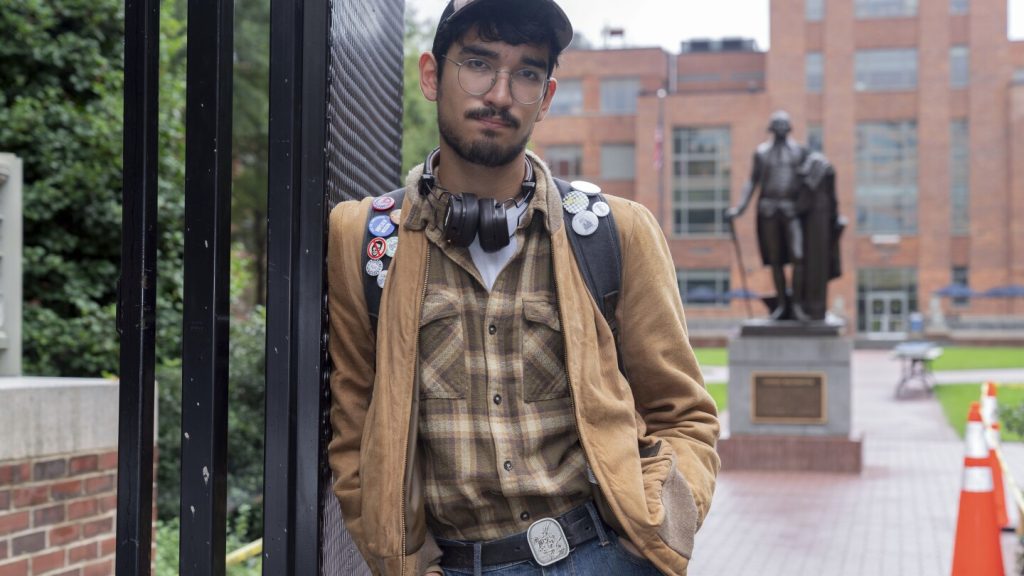College campuses across the United States are facing a tense atmosphere as the conflict between Israel and Hamas continues to sow division among students and faculty. The aftermath of the Oct. 7 attack by Hamas has led to heightened tensions, with some students feeling reluctant to speak out for fear of repercussions from their peers, professors, and potential employers. The war, which began with an attack on southern Israel that resulted in civilian casualties, has led to a climate where political opinions are closely guarded.
Students like Ty Lindia at George Washington University in Washington, D.C. are navigating through social bubbles that have formed along the divisions of the war. Lindia, studying political science, is cautious about expressing his views openly for fear of alienating others or facing consequences in the future. The fear of saying the wrong thing has led to strained relationships and a general sense of unease on campus. The war has created a war of ideologies among faculty and students, with everyone taking sides on the issue.
On many campuses, new protest rules have been implemented to limit demonstrations and maintain a sense of order. Policies banning encampments and restricting protests to specific hours and locations have been put in place to prevent disruptions on campus. However, these restrictions have faced criticism from students and faculty members who believe that free speech is being stifled in the process. Some students, like Mikayla Kaplan at Indiana University, find themselves holding back in discussions due to the politically progressive environment on campus.
Amidst the challenges of navigating through sensitive topics, universities are making efforts to promote civil discourse and constructive disagreement. Campuses are hosting events that bring together speakers from different perspectives to foster dialogue and understanding. However, the lingering unease over the conflict has made it difficult for some students to openly express their views, especially if they do not align with the prevailing sentiments on campus. The issue of free speech versus protecting students from discrimination continues to be a balancing act for university leaders.
The pressure to uphold free speech while managing campus tensions has led to increased scrutiny on colleges by the U.S. Education Department. Colleges are being investigated for reports of antisemitism or Islamophobia, with leaders being called before Congress to address these issues. The debate over where to draw the line on protected speech remains contentious, particularly at public universities bound by the First Amendment. Students like Nivriti Agaram at George Washington University feel that moderate voices are being drowned out by more extreme views on the conflict.
Despite the challenges and divisions on campus, efforts are being made to promote dialogue and understanding among students and faculty. Schools like Wesleyan University are offering new courses on civil disagreement, while faculty members are working to facilitate discussions on contentious issues. The goal is to create a more inclusive and open environment where students feel comfortable expressing their opinions without fear of retribution. As college campuses continue to grapple with the impact of the Israel-Hamas conflict, finding a balance between free speech and respectful dialogue remains a key challenge.















